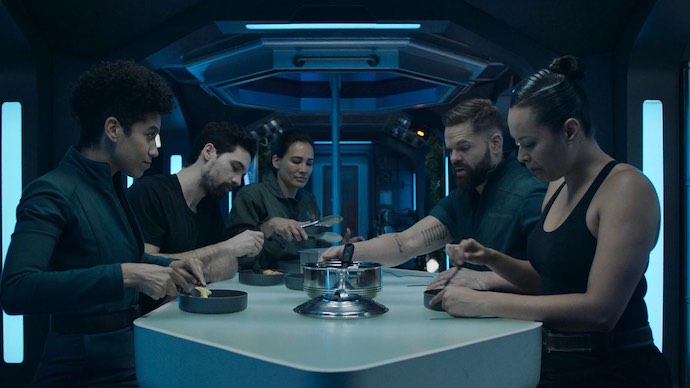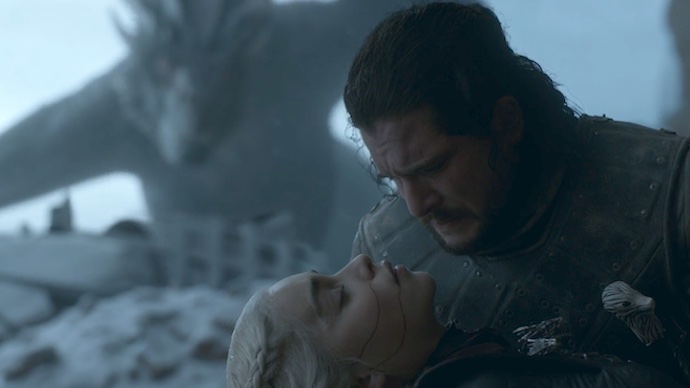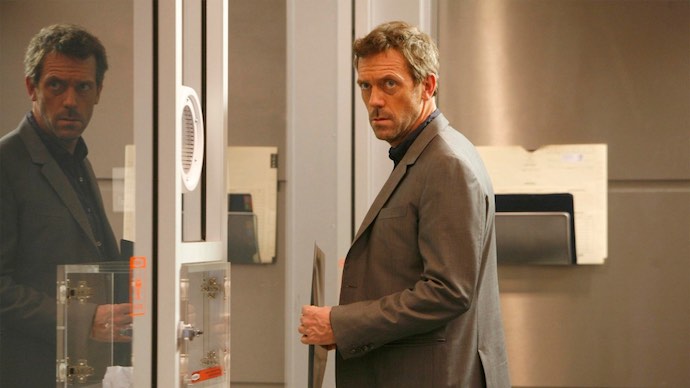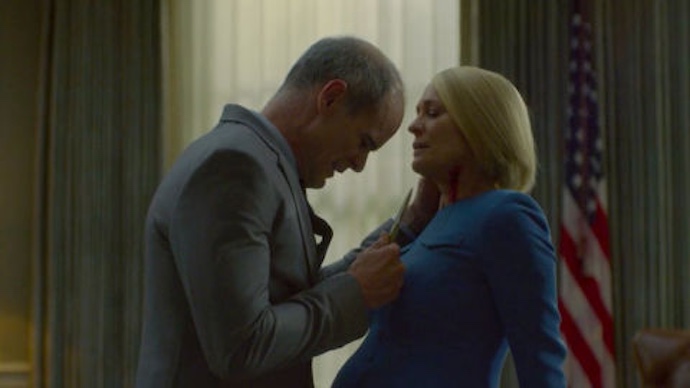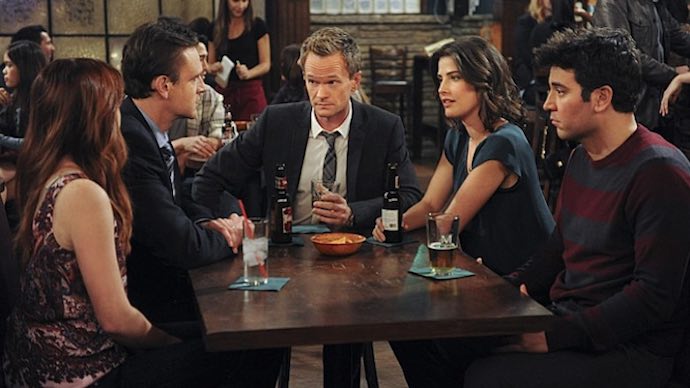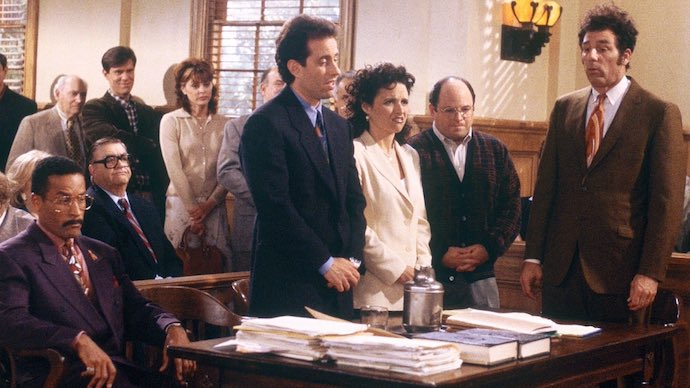And all is well if the general consensus shows thumbs up. But what if the result is a Commodus-style thumbs down? The poo-flinging begins as critical backlash whips out across social media. Some choose to avoid facing the ire of fans head-on by burying their heads in the sand, which is what David Benioff and D.B. Weiss did. Others come out in staunch defense with guns a-blazing. No matter how showrunners respond, one thing remains: the once-beloved TV series will always be viewed as a let-down—or worse, a disaster that renders all prior good work null and void. Here are our picks for the worst TV show endings and what they should’ve done differently.
7. The Expanse (2015–2022)
I want to be clear right off the bat: not only is The Expanse one of the best sci-fi TV series ever created, its narrative ending is far from horribly written. My gripe is that it ended prematurely. But, for whatever reason, the streaming platform cut funding for the show’s final season and insisted that it only be six episodes long. Giving the acclaimed series only half a season to wrap up felt like another big blow for embattled fans who’d already seen the series cancelled once before. It was a decision that cheated us out of more time spent with our favorite characters and their deserved goodbyes.
6. Game of Thrones (2011–2019)
For seven seasons, any criticism for Game of Thrones was drowned out by the collective sound of fans and their stark adoration of the series. Despite deviations from the source material, fans believed that everything was building to one of the most salient conclusions in TV history. But once season eight rolled in, the show collapsed on itself with its first episode. By the final episode, fans were deeply red in the face. And not knowing whom to blame, most took to social media and voiced their anger in a collective rage that swept through entertainment news. Many have shared how they think the show should have finished, all while David Benioff and D.B. Weiss went into hiding (and only surfaced around a year afterwards to speak minimally on the subject). We strongly believe the entire final season needed rewriting from the ground up.
5. House (2004–2012)
Was the finale of House bad? Not atrociously so. Especially not for a medical drama! But for this medical drama, yes, it could’ve been much better. It lacked its usual panache and sense of arrogance that had permeated the series through its lead character. Faking his own death to spend his days with a dying Wilson, House rides off into the sunset with his best friend, and that’s where we leave them—out on the open road together. Not the most fitting ending for a show that used to be bold and daring. If House had condemned himself to a life of nothing after Wilson lived out his last few months, he probably would have killed himself afterwards. A depressing end, but at least it would’ve provided closure. And what happened to Lisa Cuddy throughout the final season?
4. House of Cards (2013–2018)
Once Kevin Spacey was deservedly fired from House of Cards, the show wasn’t able to recover from the significant loss. That’s the unfortunate truth of the final season of the series. Frank Underwood had been the most compelling and richly watchable character of the show, as the scheming politician carved his way through all competition to become the President of the United States. While his character’s exit from the show was a necessary departure for real-life reasons, it left a void that was filled by Robin Wright’s Claire Underwood. Unfortunately, the rest of the show collapsed in the absence of her on-screen husband, Frank. It’s hard to think of how the writing team could’ve done better, given that their hands were forced mid-production. Claire needed a foil—a person deeply connected to her that could challenge her—but Spacey’s character was the only one who could’ve done that.
3. How I Met Your Mother (2005–2014)
The final season of How I Met Your Mother lost itself in a murky mess of narrative that drew out a single wedding day over the entire season, allowing the audience to meet the titular mother character. One red flag showed itself when Jason Segel wanted to leave the show before the last season, but was convinced to return after being assured that it would end with season nine. However, worse than that, the show gave us the character we’d always wanted to meet in Cristin Milioti’s Tracy McConnell, then nonchalantly killed her episodes later in hopes of eliciting an emotional response. To be honest, How I Met Your Mother overstayed its welcome after five seasons. It had run its course by then. But if you’re going to drag a show out, the last thing you should do is kill the character we’ve been waiting years to see in a fit of narrative desperation.
2. Killing Eve (2018–2022)
So, you make a TV show and its first season is excellent. You continue on but the show isn’t as good as it was. What do you do? Don’t worry! This happens all the time. “Just keep trying your best and bring the two main characters together as intricately and meaningfully as possible.” That’s what someone should’ve told Phoebe Waller-Bridge when she started writing season four of the once-acclaimed show that had spiraled into over-clichéd plotting. After Eve and Villanelle kill the organization known as The Twelve and enter into a wholesome relationship with one another, they celebrate the victory—only for Villanelle to be shot and killed out of nowhere. It’s so underdone that a French restaurant might have severe problems with it. More importantly, the writers underestimated the audience’s appetite for a happy ending and instead chose to go with a shock ending.
1. Seinfeld (1989–1998)
Ending the most celebrated sitcom in TV history was always a task that was borderline impossible. So, Jerry Seinfeld went back to Larry David—the head writer and co-creator of the show who departed the series after seven seasons—to help him finish it. But even that didn’t work and the iconic sitcom master failed to write a proper send-off story with Seinfeld. He opted for fanfare rather than sticking to the principles upon which the show prided itself. The story showed the four main characters on trial and several of the show’s one-off and minor characters returning to testify against them, in an ending that became critically reviled. It really should’ve just ended with a standard episode. No grand finish, no overblown plotline. Just a simple episode that once again highlighted how selfish the characters truly were. Fortunately, we got to see that many years later when Larry David and Jerry Seinfeld reunited the cast of Seinfeld on Curb Your Enthusiasm for a meta-special episode. Read next: The best Curb Your Enthusiasm guest stars

